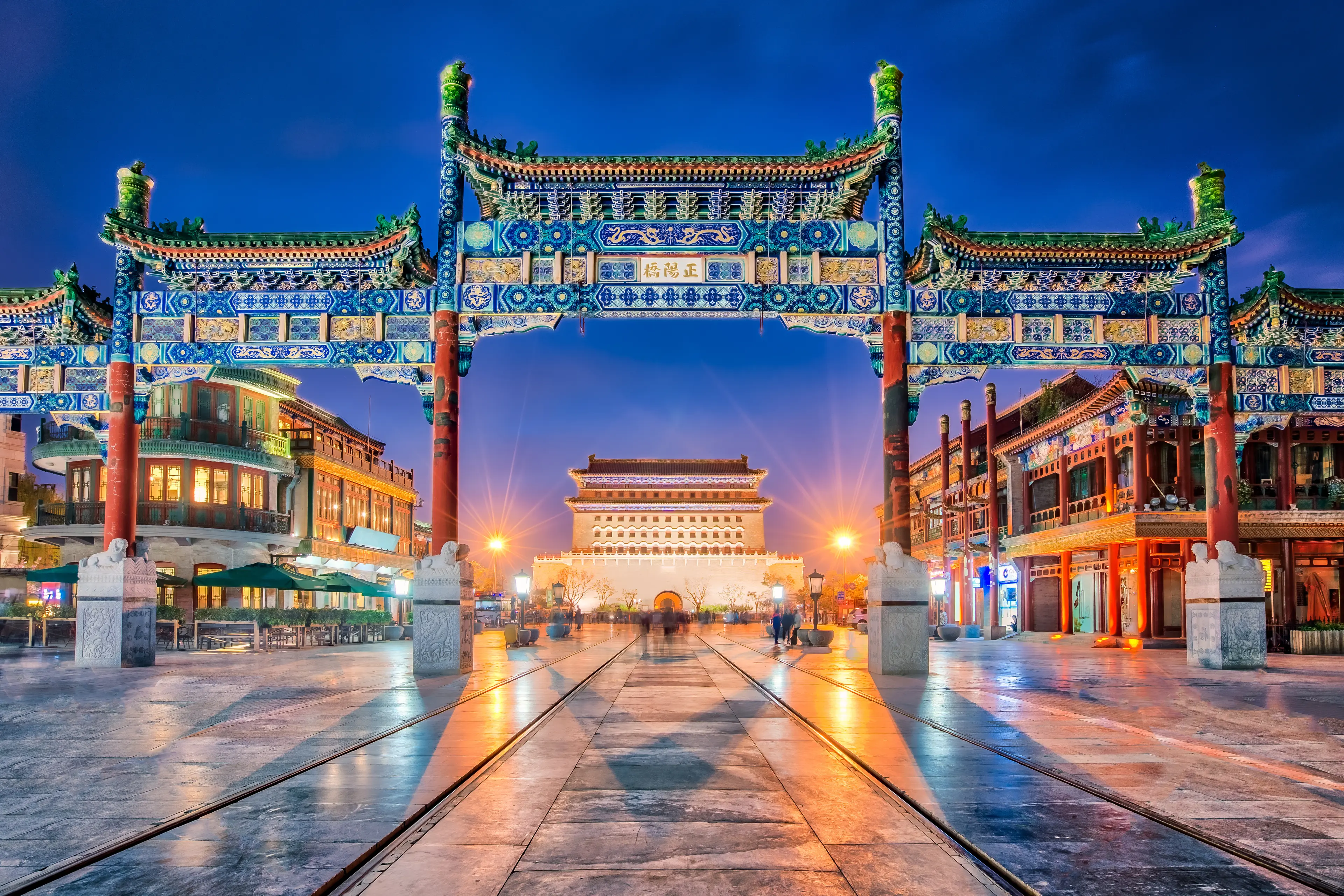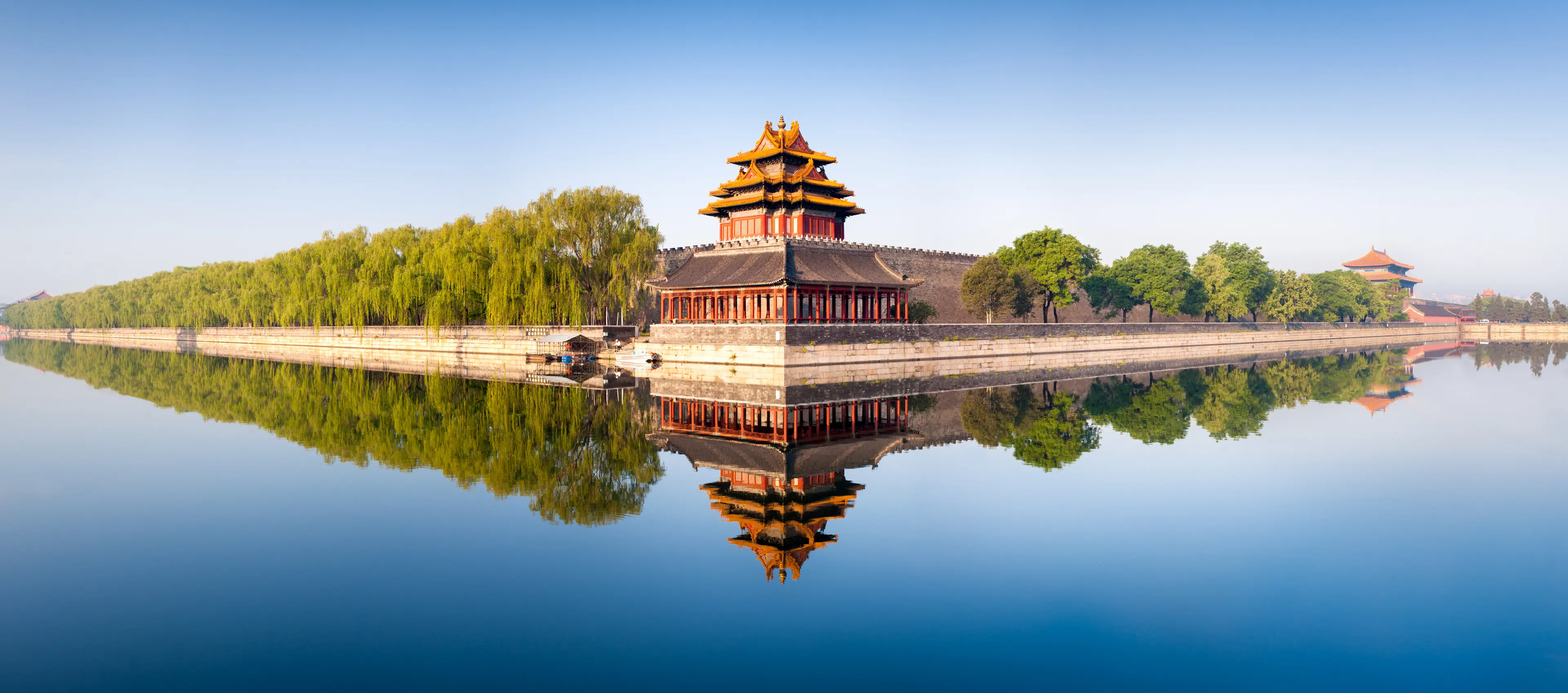3-Day Relaxing and Sightseeing Itinerary for Couples in Beijing
Beijing, China
3 days
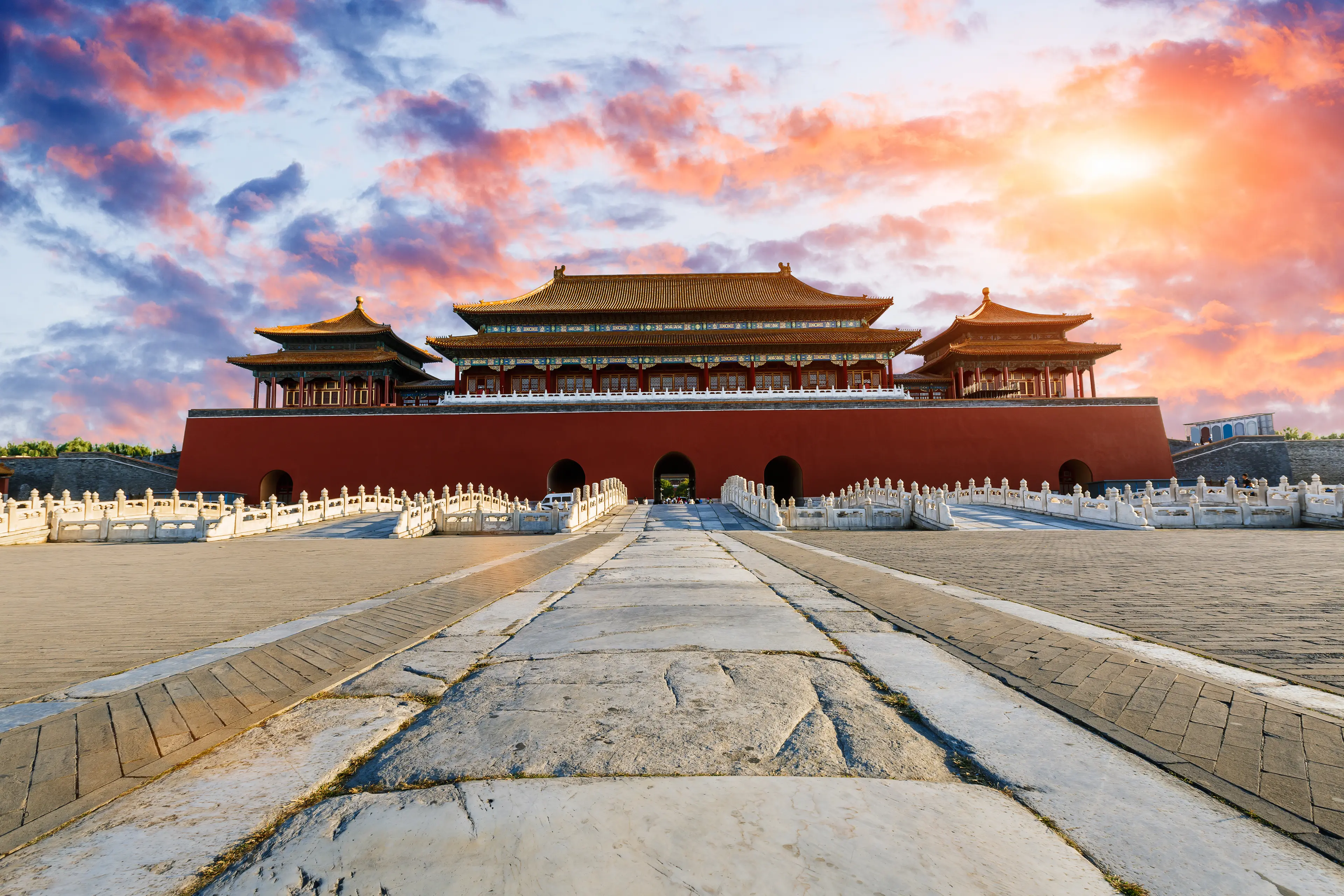
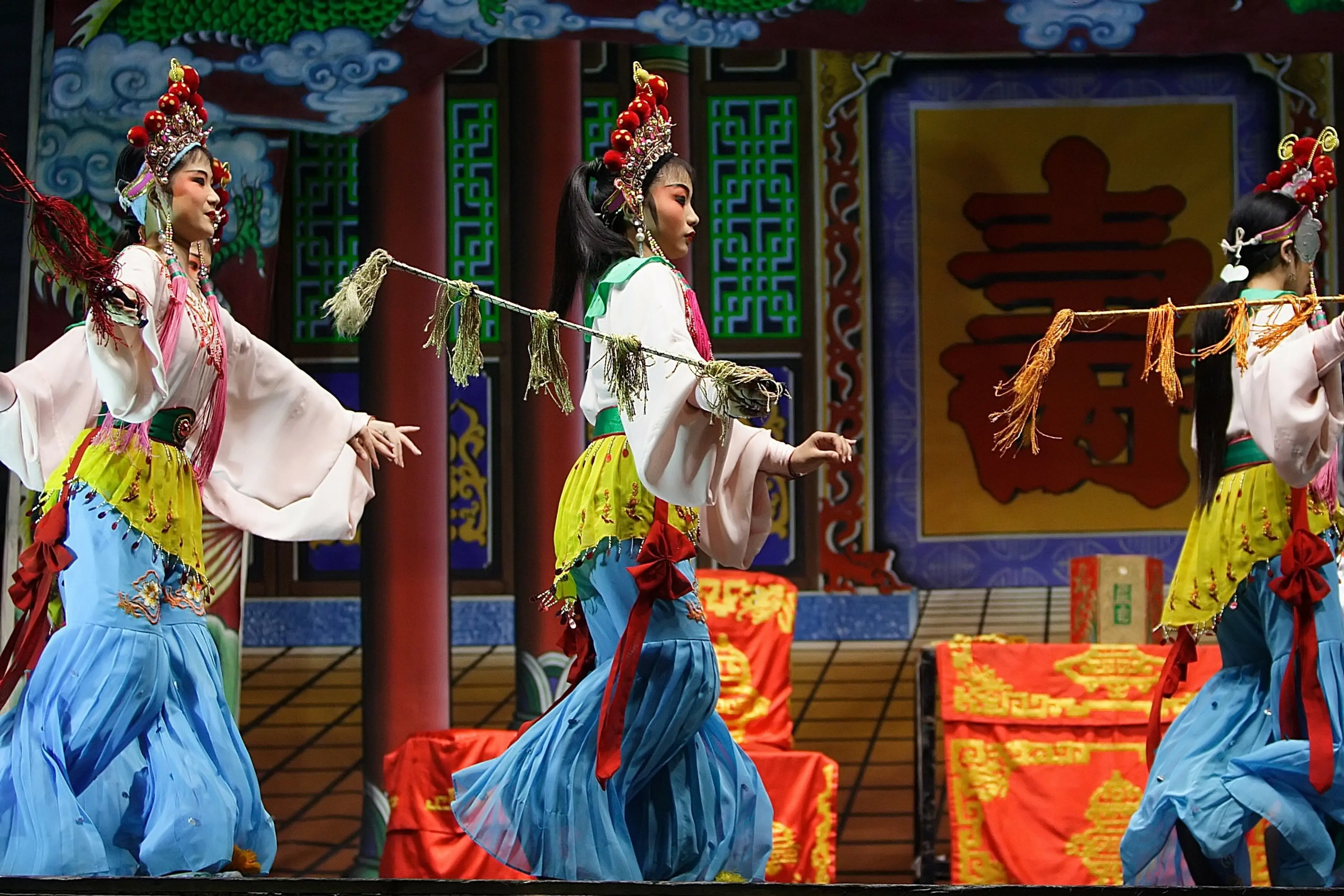
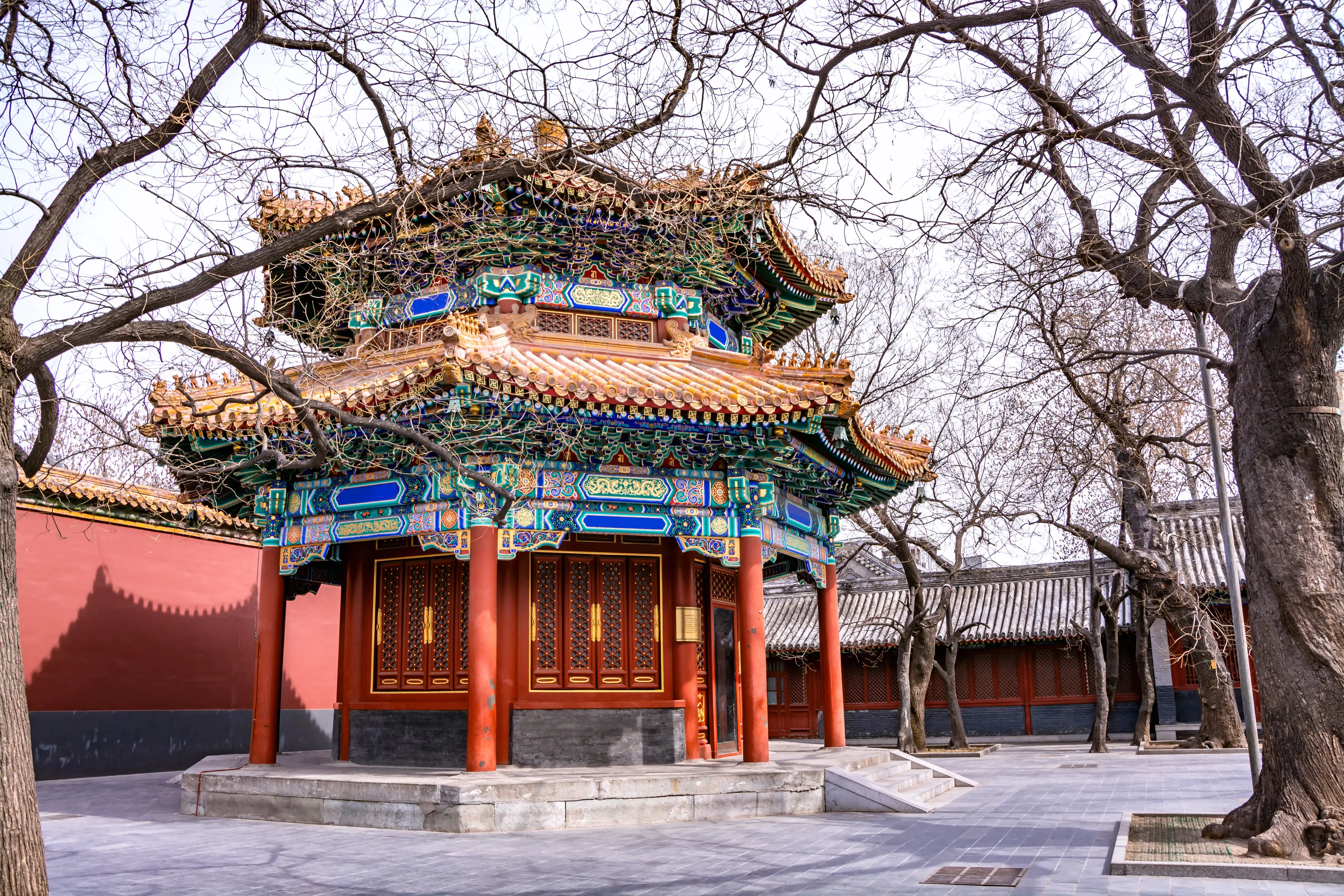
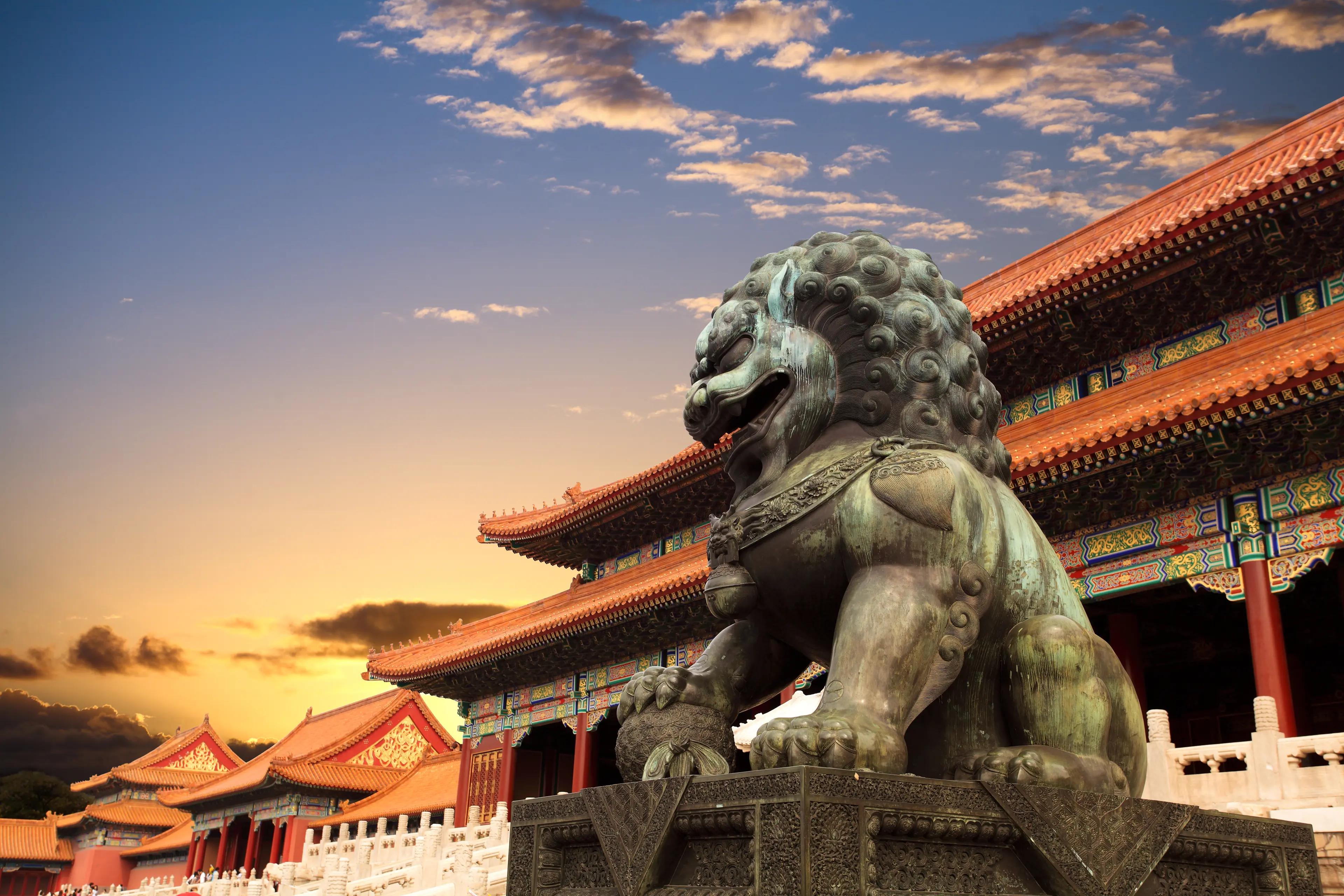
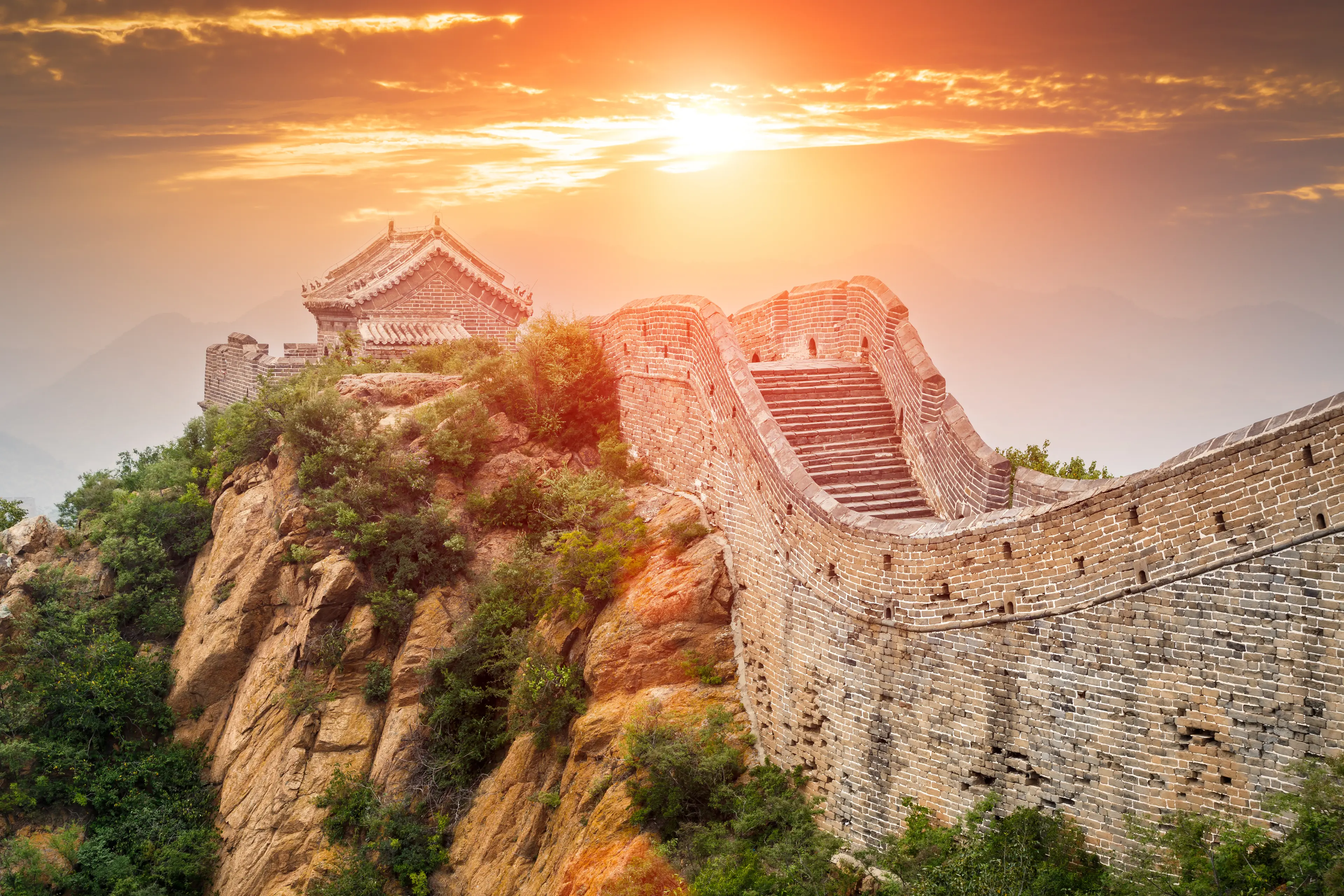
About Beijing, China
Experience the rich history and vibrant culture of Beijing, China's capital city. Marvel at iconic landmarks like the Forbidden City, a UNESCO World Heritage site, and the Great Wall of China, one of the world's most famous wonders. Explore the ancient hutongs (alleyways) on a rickshaw, taste authentic Peking duck and visit the bustling markets for unique souvenirs. Enjoy the serene beauty of the Summer Palace and Temple of Heaven. Witness the fusion of ancient traditions and modern lifestyle in this dynamic city. Beijing offers a unique blend of old and new, making it a must-visit destination for every traveler.
3-Day Itinerary
Day 2
Cultural Immersion and Relaxation
Morning
Begin your day with a visit to the Temple of Heaven, a magnificent complex of religious buildings. Participate in a Tai Chi class for a unique cultural experience.
Lunch
Have lunch at a local restaurant. Try the local dishes like noodles and stir-fried vegetables.
Afternoon
Spend your afternoon exploring the Summer Palace, a vast ensemble of lakes, gardens and palaces. Enjoy a leisurely boat ride in the Kunming Lake.
Dinner
Dine at a restaurant serving a fusion of Chinese and international cuisine. Try the seafood and tofu dishes.
Evening
Experience a traditional Chinese Opera at a local theatre. Enjoy the colorful costumes, unique music and dramatic storytelling.
Day 3
Historical Landmarks and Shopping
Morning
Start your day with a visit to the Great Wall of China. Take a guided tour and learn about the history and significance of this iconic landmark.
Lunch
Enjoy a picnic lunch at the Great Wall. Try some local snacks like steamed buns and rice dumplings.
Afternoon
Spend your afternoon exploring the Ming Tombs, a collection of mausoleums built by the emperors of the Ming dynasty.
Dinner
Have dinner at a local restaurant. Try the Sichuan cuisine, known for its bold flavors and spicy dishes.
Evening
End your day with a stroll in the 'Wangfujing Street', a famous shopping street. Buy souvenirs and try the street food.
Attractions in Itinerary (8)

1Tiananmen Square
One of the largest city squares in the world, Tiananmen Square is a significant site of political history and a symbol of the Chinese nation.

2Forbidden City
The Forbidden City, a UNESCO World Heritage site, is a vast complex of palaces and administrative buildings that served as the Chinese imperial palace from the Ming dynasty to the end of the Qing dynasty.

3Houhai Lake
A popular lake in Beijing known for its surrounding nightlife, restaurants, and bars.

4Temple of Heaven
An imperial complex of religious buildings situated in the southeastern part of central Beijing.

5Summer Palace
A vast ensemble of lakes, gardens and palaces in Beijing. It was an imperial garden in the Qing Dynasty.
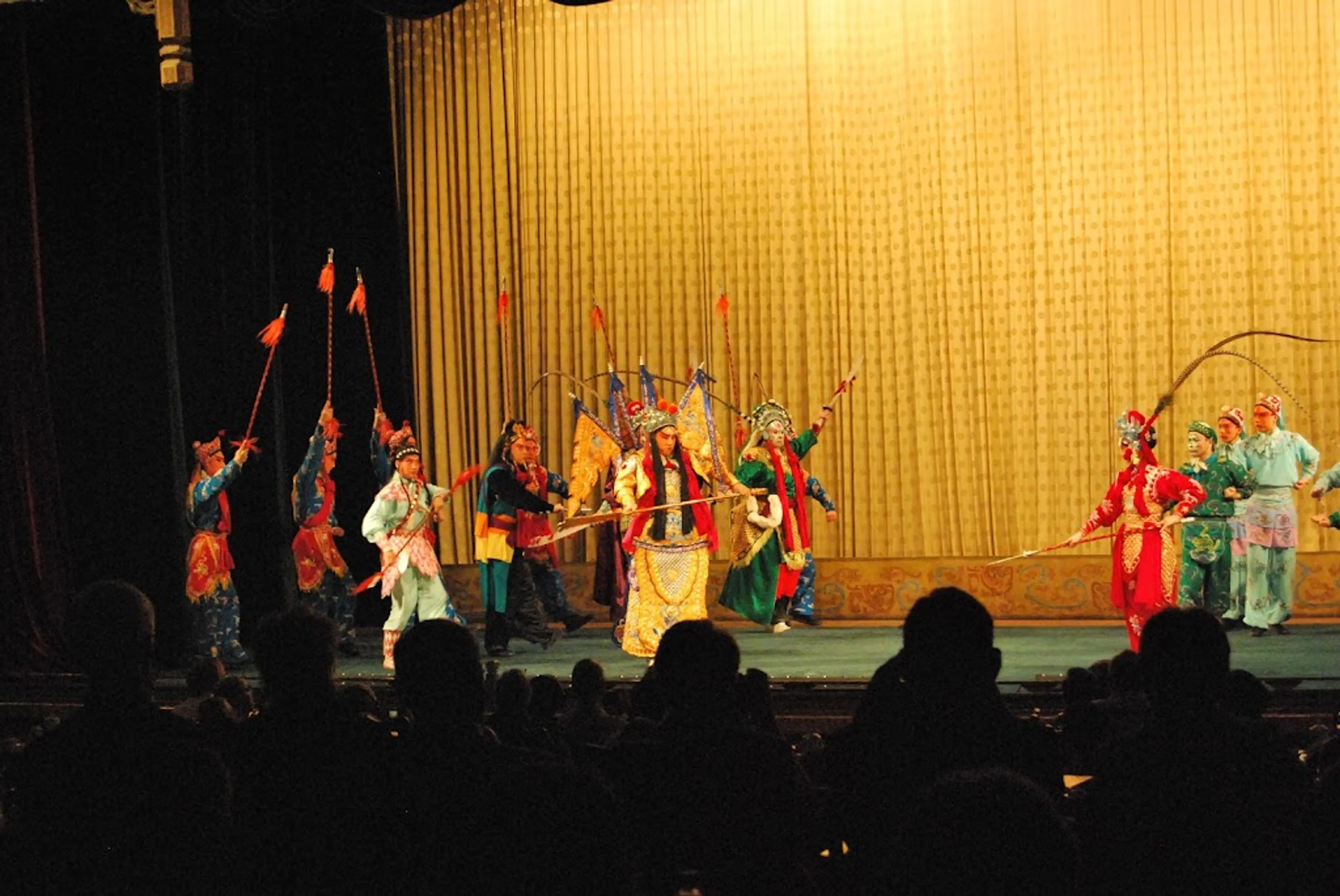
6Chinese Opera
A popular form of drama and musical theatre in China with roots going back to the early periods in China.

7Great Wall of China
An ancient series of walls and fortifications, built across the northern borders of China to protect the Chinese states and empires against the raids and invasions of the various nomadic groups of the Eurasian Steppe.

8Ming Tombs
A collection of mausoleums built by the emperors of the Ming dynasty of China.
Local Food and Drinks (12)

Peking Duck
A famous dish from Beijing, where it has been prepared since the imperial era. The meat is characterized by its thin, crisp skin, with authentic versions of the dish serving mostly the skin and little meat, sliced in front of the diners by the cook.

Jiaozi
Traditional Chinese dumplings, often eaten on Chinese New Year's Eve. They are a symbol of wealth and prosperity in Chinese culture and are a staple food in Northern China, including Beijing.

Zhajiangmian
A popular noodle dish in Beijing, it consists of thick wheat noodles topped with a mixture of fried ground pork and zhajiang, a salty fermented soybean paste.
Mongolian Hotpot
A communal dish that's popular in Beijing, especially during the cold winter months. Diners cook their own meat, tofu, vegetables, and noodles in a simmering pot of soup.
Beijing Yogurt
A traditional Beijing drink served in a ceramic jar. It's a sweet and slightly sour yogurt, often consumed as a drink rather than a dessert.
Jing Jiang Rousi
A popular Beijing dish consisting of shredded pork in sweet bean sauce, served with leek and tofu wrappers.
Tudou Si
A traditional Beijing dish made from shredded potatoes stir-fried with peppers and vinegar. It's a common home-cooked dish in Beijing.
Lu Zhu Huo Shao
A traditional Beijing breakfast dish. It's a mutton stew served with baked wheaten cakes.
Beijing Roast Chestnuts
A popular street food in Beijing, especially in winter. The chestnuts are roasted in a large barrel-shaped roaster and have a sweet and smoky flavor.
Ma Doufu
A traditional Beijing dish made from fermented mung beans and tofu. It has a unique sour and spicy flavor.
Beijing Bao Du
A traditional Beijing dish made from boiled lamb offal. It's often served with a dipping sauce made from sesame paste, vinegar, and chili oil.
Beijing Mung Bean Milk
A traditional Beijing drink made from mung beans. It's often consumed for breakfast and has a slightly sour taste.
Best time to visit
The best time to visit Beijing, China is during the spring (April - June) and autumn (September - October) seasons. During these periods, the weather is most pleasant and suitable for outdoor activities. Spring offers beautiful blossoms and green landscapes, while autumn showcases the city's stunning fall foliage. These seasons also avoid the extreme temperatures of Beijing's hot, humid summers and cold, dry winters. Additionally, these periods are outside of the peak domestic travel seasons, providing a more relaxed tourism experience.
National holidays
Here you can find the national calendar of all public holidays for the year. These dates are subject to change as official changes are announced, so check back regularly for updates.
| Date | Day | Holiday Name |
|---|---|---|
January 1 | Mon | New Year's Day |
February 9 | Fri | Spring Festival Eve |
February 10 | Sat | Lunar New Year |
February 11 | Sun | Spring Festival Golden Week holiday |
February 12 | Mon | Spring Festival Golden Week holiday |
February 13 | Tue | Spring Festival Golden Week holiday |
February 14 | Wed | Spring Festival Golden Week holiday |
February 15 | Thu | Spring Festival Golden Week holiday |
March 8 | Fri | International Women's Day |
April 4 | Thu | Qing Ming Jie |
May 1 | Wed | Labour Day |
May 4 | Sat | Youth Day |
June 10 | Mon | Dragon Boat Festival |
September 17 | Tue | Mid-Autumn Festival |
October 1 | Tue | National Day |
October 2 | Wed | National Day Golden Week holiday |
October 3 | Thu | National Day Golden Week holiday |
October 4 | Fri | National Day Golden Week holiday |
October 5 | Sat | National Day Golden Week holiday |
October 6 | Sun | National Day Golden Week holiday |
How to get around
Subway
Beijing's subway system is extensive, efficient, and affordable. It covers most of the city's main attractions, business districts, and the airport. English signs and announcements are available.
Public Bus
Public buses in Beijing are a cheap way to get around, but they can be crowded during rush hours. They cover almost every corner of the city. The downside is that most bus signs and announcements are in Chinese.
Taxi
Taxis are readily available throughout Beijing. They are metered and relatively affordable. Drivers may not speak English, so it's advisable to have your destination written in Chinese.
Ridesharing
Ridesharing services like Didi Chuxing (similar to Uber) are popular in Beijing. The app is available in English and fares are usually cheaper than taxis. However, you'll need a Chinese phone number and payment method to use the service.
Bicycle
Beijing is a bike-friendly city with dedicated bike lanes. There are several bike-sharing companies like Ofo and Mobike. You can rent a bike using their app and drop it off at any public bike parking area.
Pedestrian
Many of Beijing's attractions are located close to each other, making walking a viable option. The city is generally pedestrian-friendly with ample sidewalks and pedestrian zones.
Private Car Hire
Private car hire services are available, often with an English-speaking driver. This can be a convenient option for day trips or if you prefer a more comfortable and private mode of transport.
Airport Express Train
The Airport Express train links Beijing Capital International Airport with the city center. It's a fast and convenient way to travel between the airport and the city.
Rickshaw
Rickshaws offer a unique way to explore Beijing, especially the narrow alleyways of the Hutongs. However, agree on a price before the ride to avoid overcharging.
Important information
Currency RMB
Time zoneUTC+8
Driving sideRight
Emergency phoneAmbulance: 120; Fire: 119; Police: 110, 122 (traffic accident)
Drinking waterOpt for bottled water
Power sockets
Voltage220 V
Things to know about Beijing, China as a first time visitor
1
Beijing is the capital city of China and is one of the most populous cities in the world.
2
The official language is Mandarin, also known as Putonghua. English is not widely spoken, so it's a good idea to learn a few basic phrases.
3
The currency used in Beijing is the Renminbi (RMB), with the basic unit being the Yuan.
4
Credit cards are accepted in most hotels, restaurants, and shops. However, it's always a good idea to carry some cash for smaller establishments or street vendors.
5
Beijing operates on China Standard Time, which is 8 hours ahead of Greenwich Mean Time (GMT +8).
6
The city has a monsoon-influenced humid continental climate. Summers (June to August) can be hot with temperatures ranging from 70°F to 90°F (21°C to 32°C). Winters (December to February) are cold and dry with temperatures ranging from 14°F to 36°F (-10°C to 2°C).
7
Beijing is a safe city with a low crime rate. However, like any major city, it's wise to be cautious of your belongings and avoid less crowded areas at night.
8
Tipping is not customary in Beijing, and it's often not accepted in many places.
9
Public transportation is extensive and affordable. It includes the subway, buses, and taxis. However, during peak hours, these can be very crowded.
10
Beijing is known for its heavy air pollution. If you have respiratory problems, it's advisable to check the air quality index (AQI) before your trip.
11
Internet censorship is strict in China. Many Western websites and apps, including Google, Facebook, and Twitter, are blocked. Consider using a VPN if you need access to these sites.
12
Beijing's tap water is not safe to drink. Always drink bottled water.
13
Traditional Chinese medicine and acupuncture are widely available and can be an interesting cultural experience.
14
Beijing cuisine is characterized by its variety and flavor. Don't miss out on trying Peking Duck, a local specialty.
15
Beijing is a mix of modern and traditional architecture. Respect local customs and traditions when visiting traditional sites.
16
Public restrooms in Beijing often do not provide toilet paper. It's a good idea to carry some with you.
17
Shopping in Beijing can be a fun experience. Remember to bargain in markets to get a good deal.
18
Beijing is a city that never sleeps. There are plenty of night markets, bars, and clubs for night owls.
19
Beijing's healthcare system is good, with many hospitals and clinics. However, not all staff may speak English.
20
If you're planning to visit other cities in China, Beijing has excellent rail and air connections.
Basic Mandarin Chinese to know as a first time visitor
English phrase | Native phrase | Pronunciation | When to use it |
|---|---|---|---|
Hello | 你好 | Ni hao | Greeting someone |
Goodbye | 再见 | Zai jian | Leaving or saying goodbye |
Thank you | 谢谢 | Xie xie | Showing appreciation |
Please | 请 | Qing | Making a request |
Yes | 是 | Shi | Affirming or agreeing |
No | 不是 | Bu shi | Disagreeing or denying |
Sorry | 对不起 | Dui bu qi | Apologizing |
Excuse me | 打扰一下 | Da rao yi xia | Getting attention or apologizing |
Do you speak English? | 你会说英语吗? | Ni hui shuo ying yu ma? | Asking if someone speaks English |
I don't understand | 我不懂 | Wo bu dong | Not understanding what was said |
Where is the bathroom? | 洗手间在哪里? | Xi shou jian zai na li? | Looking for the bathroom |
How much does this cost? | 这个多少钱? | Zhe ge duo shao qian? | Asking for the price of something |
I would like to order | 我想点菜 | Wo xiang dian cai | Ordering food in a restaurant |
Water | 水 | Shui | Asking for water |
Help | 帮助 | Bang zhu | In need of assistance |
Taxi | 出租车 | Chu zu che | Looking for a taxi |
Hotel | 酒店 | Jiu dian | Looking for a hotel |
Airport | 机场 | Ji chang | Looking for the airport |
Train station | 火车站 | Huo che zhan | Looking for the train station |
Can you help me? | 你能帮我吗? | Ni neng bang wo ma? | Asking for help |
Packing List
Clothing
Underwear (3 pairs)
Socks (3 pairs)
T-shirts (3)
Long-sleeve shirts (2)
Pants/Jeans (2 pairs)
Comfortable walking shoes
Jacket or sweater
Pajamas
Swimsuit (if your hotel has a pool)
Scarf, gloves and hat (if traveling in winter)
Toiletries
Toothbrush and toothpaste
Deodorant
Razor and shaving cream
Shampoo and conditioner
Body wash or soap
Face wash and moisturizer
Sunscreen
Travel-size first aid kit
Prescription medications
Hand sanitizer
Travel documents and essentials
Passport
Visa (if required)
Driver's license (for ID purposes)
Airline tickets
Hotel reservation confirmations
Travel insurance documents
Credit cards and cash
Emergency contact information
Electronics and gadgets
Smartphone
Charger for smartphone
Power bank
Headphones
Camera
Charger for camera
Travel adapter (China uses type A, C and I outlets)
Miscellaneous items
Travel guidebook for Beijing
Map of Beijing
Reusable water bottle
Snacks
Travel pillow and eye mask
Earplugs
Travel-size laundry detergent
Ziplock bags
Tissues
Umbrella
Weather Conditions
Beijing, China, experiences a temperate monsoon climate with four distinct seasons, so it's crucial to plan your visit accordingly. Spring (April to June) is generally mild and dry, with temperatures ranging from 50°F to 75°F (10°C to 24°C). It's a great time to visit the Great Wall and the city's parks, but be prepared for occasional sandstorms. Summer (July to August) is hot and humid, with temperatures often exceeding 86°F (30°C). It's also the rainy season, so don't forget your umbrella. Despite the heat, it's a popular time to visit due to the many festivals, such as the Dragon Boat Festival. Autumn (September to October) is arguably the best time to visit Beijing. The weather is pleasant, with temperatures ranging from 50°F to 70°F (10°C to 21°C), and the city is adorned with beautiful fall colors. It's the perfect time for outdoor activities and sightseeing. Winter (November to March) is cold and dry, with temperatures often dropping below freezing, sometimes as low as 14°F (-10°C). It's the off-peak season, so you'll find fewer tourists and lower prices. If you don't mind the cold, you can enjoy activities like ice skating and the spectacular Chinese New Year celebrations. Regardless of when you visit, remember to check the weather forecast regularly, as conditions can change rapidly. Also, be aware of the air quality index, as Beijing can sometimes experience high pollution levels. Lastly, dress in layers to accommodate fluctuating temperatures and always carry a reusable water bottle to stay hydrated. Enjoy your trip to Beijing!
| Month | Hi / Lo (°C) | Weather Overview |
|---|---|---|
January | 2° / -9° | January is the coldest month in Beijing, with temperatures often dropping below freezing. It's a quiet time for tourism, so you'll have many attractions to yourself. |
February | 4° / -7° | February is still quite cold, but temperatures are slowly starting to rise. The Chinese New Year often falls in February, making it a vibrant time to visit. |
March | 12° / 0° | March sees a significant rise in temperature, but it can still be chilly. The city starts to come alive with the onset of spring. |
April | 21° / 7° | April is a comfortable month to visit Beijing, with mild temperatures and a relatively low chance of rain. The city's parks and gardens are in full bloom. |
May | 28° / 12° | May is a warm month with plenty of sunshine, perfect for outdoor activities. The city is bustling with tourists and locals alike. |
June | 32° / 18° | June marks the beginning of summer in Beijing, with high temperatures and occasional rainstorms. It's a great time to visit the Great Wall and other outdoor attractions. |
July | 34° / 22° | July is the hottest month in Beijing, with high humidity levels. It's a great time to visit if you don't mind the heat, but be prepared for occasional thunderstorms. |
August | 33° / 21° | August is still quite hot, but temperatures start to drop towards the end of the month. It's a popular time for tourism, so expect crowds at major attractions. |
September | 27° / 15° | September is a pleasant month to visit Beijing, with mild temperatures and less rainfall. The city's parks are particularly beautiful as the leaves start to change color. |
October | 20° / 8° | October is a comfortable month to visit Beijing, with clear skies and cool temperatures. The autumn foliage is in full swing, making it a great time for photography. |
November | 10° / 0° | November sees a significant drop in temperature, but it's still a good time to visit if you don't mind the cold. The city is less crowded, and you can enjoy the last of the autumn colors. |
December | 2° / -6° | December is a cold and dry month in Beijing, with temperatures often dropping below freezing. It's a quiet time for tourism, but you can enjoy winter activities like ice skating. |
Did you know?
Places near by Beijing, China

Tianjin
A major port city in northeastern China, known for its colonial architecture and modern skyscrapers.

Chengde Mountain Resort
A large complex of imperial palaces and gardens situated in the city of Chengde in Hebei province.

Great Wall at Huangyaguan
A part of the Great Wall of China located in Tianjin municipality.

Eastern Qing Tombs
The largest, most complete, and best preserved extant mausoleum complex in China.

Shilinxia Scenic Area
A beautiful natural landscape featuring a large gorge and a glass sightseeing platform.

Longqing Gorge
A narrow canyon surrounded by mountains, known for its natural beauty and boat tours.

Qinhuangdao
A port city known for its beaches, including Beidaihe, which has been a popular seaside resort since the 19th century.

Cuandixia Village
A well-preserved ancient village with a history of more than 400 years.
